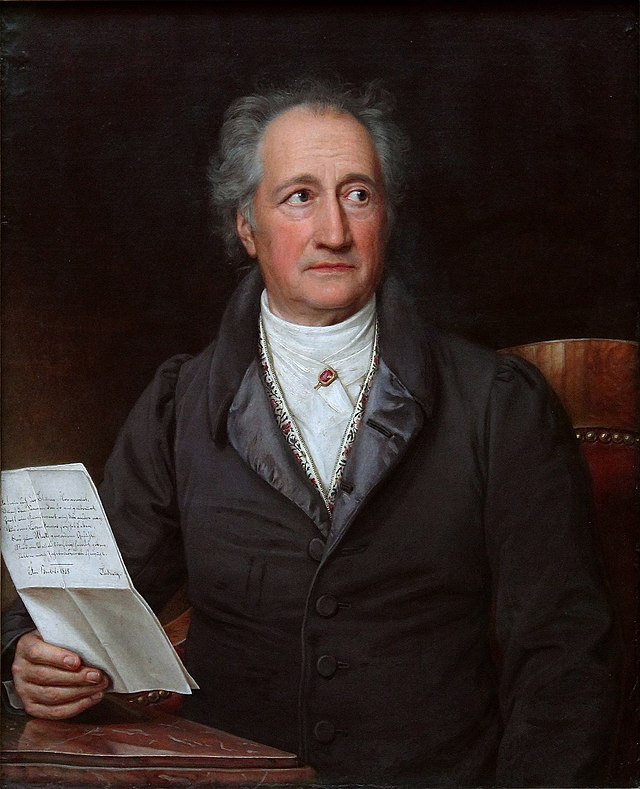ACT I.
Clara winds a skein, and sings with Brackenburg.
THE drum gives the signal!
Loud rings the shrill fife!
My love leads his troops on
Full arm'd for the strife,
While his hand grasps his lance
As they proudly advance.
My bosom pants wildly!
My blood hotly flows!
Oh had I a doublet,
A helmet, and hose!
Through the gate with bold footstep
I after him hied,
Each province, each country
Explored by his side.
The coward foe trembled
Then rattled our shot:
What bliss e'er resembled
A soldier's glad lot!
ACT III.
CLARA sings.
Gladness
And sadness
And pensiveness blending
Yearning
And burning
In torment ne'er ending;
Sad unto death,
Proudly soaring above;
Happy alone
Is the soul that doth love!
FROM "WILHELM MEISTER'S APPRENTICESHIP."
BOOK II., CHAP. XIII.
WHO never eat with tears his bread,
Who never through night's heavy hours
Sat weeping on his lonely bed,
He knows you not, ye heavenly powers!
Through you the paths of life we gain,
Ye let poor mortals go astray,
And then abandon them to pain,
E'en here the penalty we pay,
-
WHO gives himself to solitude,
Soon lonely will remain;
Each lives, each loves in joyous mood,
And leaves him to his pain.
Yes! leave me to my grief!
Were solitude's relief
E'er granted me,
Alone I should not be.
A lover steals, on footstep light,
To learn if his love's alone;
Thus o'er me steals, by day and night,
Anguish before unknown,
Thus o'er me steals deep grief.
Ah, when I find relief
Within the tomb so lonely,
Will rest be met with only!
-
BOOK IV., CHAP. XI.
My grief no mortals know,
Except the yearning!
Alone, a prey to woe,
All pleasure spurning,
Up tow'rds the sky I throw
A gaze discerning.
He who my love can know
Seems ne'er returning;
With strange and fiery glow
My heart is burning.
My grief no mortals know,
Except the yearning!
-
BOOK V., CHAP. X.
SING no more in mournful tones
Of the loneliness of night;
For 'tis made, ye beauteous ones,
For all social pleasures bright.
As of old to man a wife
As his better half was given,
So the night is half our life,
And the fairest under heaven.
How can ye enjoy the day,
Which obstructs our rapture's tide?
Let it waste itself away;
Worthless 'tis for aught beside.
But when in the darkling hours
From the lamp soft rays are glowing,
And from mouth to mouth sweet showers,
Now of jest, now love, are flowing,
When the nimble, wanton boy,
Who so wildly spends his days,
Oft amid light sports with joy
O'er some trifling gift delays,Ä
When the nightingale is singing
Strains the lover holds so dear,
Though like sighs and wailings ringing
In the mournful captive's ear,
With what heart-emotion blest
Do ye hearken to the bell,
Wont of safety and of rest
With twelve solemn strokes to tell!
Therefore in each heavy hour,
Let this precept fill your heart:
O'er each day will sorrow loud,
Rapture ev'ry night impart.
From Egmont.
Johann Wolfgang von Goethe
Suggested Poems
Explore a curated selection of verses that share themes, styles, and emotional resonance with the poem you've just read.
